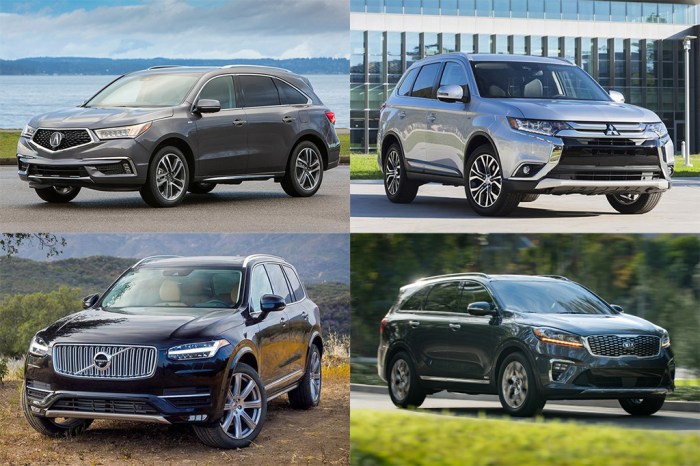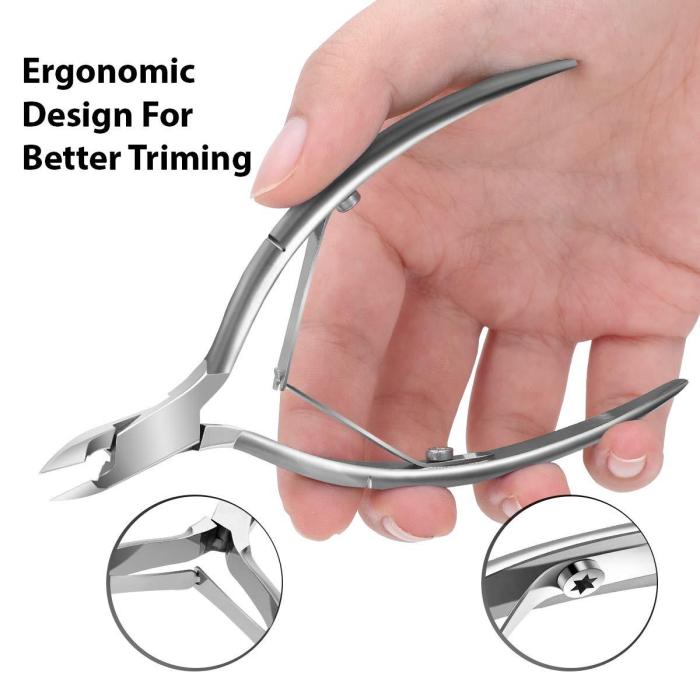Best crossover SUVs offer the perfect blend of style, comfort, and versatility, making them a popular choice for drivers everywhere. These vehicles have evolved significantly over the years, combining the spaciousness of SUVs with the handling of sedans to create a dynamic driving experience. Understanding what makes crossover SUVs unique compared to traditional SUVs helps consumers make informed choices, ensuring they select the right model to fit their needs.
From their defining characteristics to the essential features that set the best crossover SUVs apart, there’s a lot to explore. Safety ratings, fuel efficiency, and engine performance metrics are just a few things that can influence a buyer’s decision, along with the latest trends in the market that reflect consumer preferences and technological advancements. Whether it’s about budgeting for your dream SUV or considering the environmental impact of your choice, this guide has you covered.
Crossover SUV Overview
Crossover SUVs have become one of the most popular vehicle categories in recent years, blending the functionality of traditional SUVs with the comfort and efficiency of cars. These vehicles are designed primarily on a car platform, offering a good balance between passenger comfort and utility.
The evolution of crossover SUVs began in the late 1990s, with models like the Toyota RAV4 and Honda CR-V paving the way. Unlike traditional SUVs, which are built on truck platforms, crossovers utilize unibody construction, making them lighter and more fuel-efficient. This distinction is crucial, as it allows for better handling and ride quality, appealing to a broader range of consumers.
Definition and Characteristics
Crossover SUVs are characterized by their higher ground clearance, spacious interiors, and versatile cargo space. They typically feature all-wheel drive options and a higher seating position, providing drivers with better visibility on the road.
Differences Between Crossover SUVs and Traditional SUVs
While both types of vehicles offer similar looks, the key differences lie in their construction and driving experience. Traditional SUVs are generally more rugged and designed for off-road capabilities, while crossovers prioritize comfort and efficiency, making them more suitable for urban driving.
Top Features of Best Crossover SUVs
When searching for the best crossover SUVs, several features stand out as essential. These features enhance the driving experience and ensure safety and comfort for all passengers.
Key Features
The best crossover SUVs typically come equipped with:
- Advanced infotainment systems that integrate smartphones seamlessly.
- Spacious interiors with flexible seating arrangements for added versatility.
- All-wheel drive capabilities for enhanced traction in various weather conditions.
Safety Features
Safety is a paramount concern for consumers, and top crossover models incorporate numerous safety features. Commonly found technologies include:
- Lane departure warning systems that alert drivers if they drift out of their lane.
- Automatic emergency braking to prevent collisions.
- Blind-spot monitoring to help with safe lane changes.
Fuel Efficiency and Engine Performance
Fuel efficiency is another critical factor, with many crossover SUVs boasting impressive ratings. Engine performance metrics often include:
- Turbocharged engines for better power without sacrificing fuel economy.
- Hybrid options that significantly reduce emissions and fuel consumption.
- Adaptive transmission systems that optimize gear shifts for different driving conditions.
Popular Crossover SUV Models
Several crossover SUV models have garnered attention and acclaim in the current year. Each of these vehicles offers unique selling points that cater to various consumer needs.
Top-Ranked Crossover SUVs

Here’s a list of popular crossover SUVs for 2023:
- Toyota RAV4: Known for its reliability and fuel efficiency.
- Honda CR-V: Offers a spacious interior and a smooth ride.
- Ford Escape: Features advanced technology and a range of engine choices.
Specifications and Pricing Comparison
A comparison table provides a clearer view of the specifications and pricing for these models:
| Model | Engine Type | Fuel Efficiency (MPG) | Starting Price |
|---|---|---|---|
| Toyota RAV4 | Hybrid | 40 city / 36 highway | $28,000 |
| Honda CR-V | I4 | 28 city / 34 highway | $27,000 |
| Ford Escape | I4 / Hybrid | 30 city / 33 highway | $26,000 |
Crossover SUV Market Trends
The crossover SUV market is continually evolving, driven by changing consumer preferences and technological advancements.
Current Market Trends
Several trends are shaping the industry, including:
- A shift towards electrification with more hybrid and electric models.
- Increased demand for advanced driver-assistance systems.
- A focus on sustainable materials in vehicle interior design.
Consumer Preferences
Today’s consumers prioritize comfort, safety, and technology in their vehicle choices. Features such as infotainment systems and connectivity options have become critical in driving purchasing decisions.
Impact of Technology Advancements
Technological advancements play a significant role in the evolution of crossover SUVs. The integration of AI and machine learning into vehicle systems enhances safety measures and driving experiences.
Budget Considerations for Crossover SUVs
When considering a crossover SUV, several cost factors must be taken into account to ensure a wise purchase.
Cost Factors
Key cost factors include:
- Base price of the vehicle and any additional features.
- Insurance rates that vary by model and location.
- Maintenance costs that depend on the brand and type of vehicle.
Financing and Leasing Tips
Consumers can explore different financing and leasing options to make their purchase more manageable. Tips include:
- Shopping around for the best interest rates.
- Considering certified pre-owned options to save on initial costs.
- Understanding lease terms and mileage limitations to avoid extra charges.
Long-term Ownership Costs
Long-term ownership costs can vary significantly across different models. Factors influencing these costs include:
- Fuel economy and the price of gasoline affecting overall running costs.
- Insurance premiums based on the vehicle’s safety ratings and repair costs.
- Depreciation rates, which affect resale value.
Environmental Impact of Crossover SUVs: Best Crossover SUVs
Crossover SUVs come with both environmental benefits and drawbacks, making it essential for consumers to consider their impact.
Environmental Benefits and Drawbacks
The benefits of crossover SUVs include better fuel efficiency compared to traditional SUVs, but they also contribute to emissions.
Hybrid and Electric Options
The market has seen an increase in hybrid and electric crossover options, such as the Toyota RAV4 Hybrid and the Ford Mustang Mach-E, which offer eco-friendly alternatives without sacrificing utility.
Choosing Eco-Friendly Options
Consumers can opt for eco-friendly crossover SUVs by considering models with lower emissions ratings and better fuel economy. Additionally, looking for manufacturers that use sustainable practices can also influence purchasing decisions.
Maintenance and Longevity of Crossover SUVs
To ensure a crossover SUV remains in top condition, regular maintenance is crucial.
Regular Maintenance Tasks, Best crossover SUVs
Key maintenance tasks include:
- Regular oil changes to keep the engine running smoothly.
- Tire rotations and alignments to enhance handling and prolong tire life.
- Brake inspections to ensure safety and performance.
Average Lifespan and Influencing Factors

Crossover SUVs generally have an average lifespan of around 10 to 15 years. Factors that influence longevity include:
- Driving habits and adherence to maintenance schedules.
- Quality of components used in manufacturing.
- Environmental conditions affecting wear and tear.
Warranty Options Across Brands
Various manufacturers offer different warranty options, which can provide peace of mind for consumers. It’s essential to compare warranties, as some brands may provide longer coverage or better terms for powertrain components.
Consumer Reviews and Ratings
Consumer feedback provides valuable insights into the real-world performance of crossover SUVs.
Experience Summaries
Reviews often highlight the following aspects:
- Comfort and ride quality as key positives for many models.
- Technology features and user-friendliness receiving high marks.
- Concerns about fuel economy in certain models compared to expectations.
Expert Ratings and Consumer Scores

The table below summarizes expert ratings and consumer scores for various crossover models:
| Model | Expert Rating | Consumer Score |
|---|---|---|
| Toyota RAV4 | 9.0/10 | 4.5/5 |
| Honda CR-V | 8.8/10 | 4.6/5 |
| Ford Escape | 8.5/10 | 4.3/5 |
Common Praises and Complaints
Crossover SUV owners often share common praises such as:
- Roomy interiors and cargo space.
- Smooth driving experience with responsive handling.
However, complaints may include:
- Higher than expected maintenance costs for certain models.
- Limited off-road capabilities compared to traditional SUVs.
Conclusive Thoughts
In conclusion, the world of crossover SUVs is vast and full of exciting options that cater to various lifestyles and preferences. As we’ve discussed, understanding the top models, features, and market trends can empower you to make the best choice for your next vehicle. So whether you’re looking for a family-friendly ride or a fuel-efficient commuter, there’s a crossover SUV that’s perfect for you, ready to enhance your driving experience for years to come.